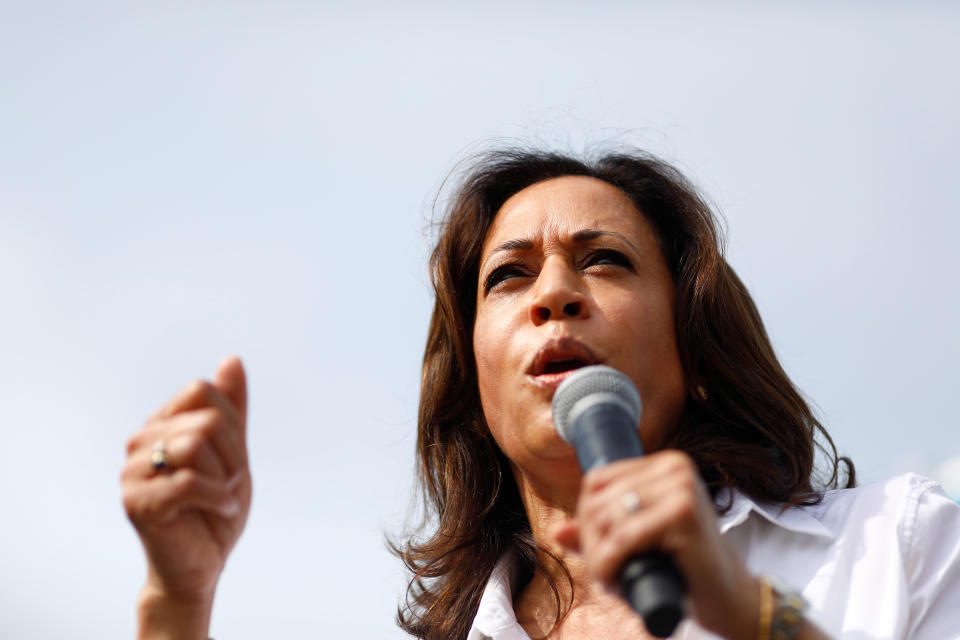Here's Kamala Harris' Ambitious Criminal Justice Reform Plan
Democratic presidential candidate Sen. Kamala Harris (D-Calif.) on Monday unveiled an expansive vision of criminal justice reform.
The ambitious plan from Harris ― a former prosecutor and California attorney general who has faced criticism from the left for her record on criminal justice ― would rejuvenate federal oversight of local police departments, end federal mandatory minimums, legalize marijuana on the federal level, establish a national deadly force standard, and increase federal funding to support police officers’ mental and physical health.
The proposal includes many elements that would require congressional authorization, some of which would be a tough lift unless Democrats took control of the Senate.
“Americans deserve a criminal justice system that focuses on fairness, rehabilitation, and accountability to build trust and safe communities,” Harris said in a statement. “We can end mass incarceration and combat the bias and racism that fuels it. We can ensure accountability for all parts of the system to build foundations of trust in our communities. We can stop profit from incarceration and stop criminalizing poverty. As president I’ll fix this broken system to make it fairer and more accountable for communities across the country.”

Harris’ plan would reverse course on federal police oversight. The Trump administration has all but killed the Department of Justice’s pattern-or-practice investigations, which look at unconstitutional conduct by local police departments. The police practice group within the Special Litigation Section of DOJ’s Civil Rights Division has effectively been cut in half since President Donald Trump took office. But Harris’ plan would double the size of the entire Civil Rights Division, plus give it new subpoena power and authorization to investigate prosecutors’ offices.
Amongst those consulted on the plan were Vanita Gupta, who headed the Civil Rights Division during the Obama administration; Ron Davis, the former director of the Justice Department’s Office of Community Oriented Policing Services and co-chair of President Barack Obama’s policing task force; and Phillip Atiba Goff, the president of the Center for Policing Equity.
Goff told HuffPost that he was impressed that the plan called for block grants to improve data collection and analyses.
“Open data are great,” he said. “But without analyses the conversation can quickly regress to the same talking points as before. The emphasis on analyses is welcome.”
“Our hope is that her plan, along with the other recently announced criminal justice plans, will raise the level of debate on policing and remind the nation that part of the reason that criminal justice reform became a national issue is that policing was a regular headline,” Goff said. “We have not done enough as a nation to keep our promises to the communities and officers who need better from our commitment to public safety.”
Related Coverage
The Human Costs Of Kamala Harris’ War On Truancy
How 2020 Contenders Are Approaching Police Brutality And Criminal Justice Reform
Des Moines Register Editorial Board Calls Kamala Harris ‘Formidable' 2020 Opponent
Love HuffPost? Become a founding member of HuffPost Plus today.
This article originally appeared on HuffPost.

